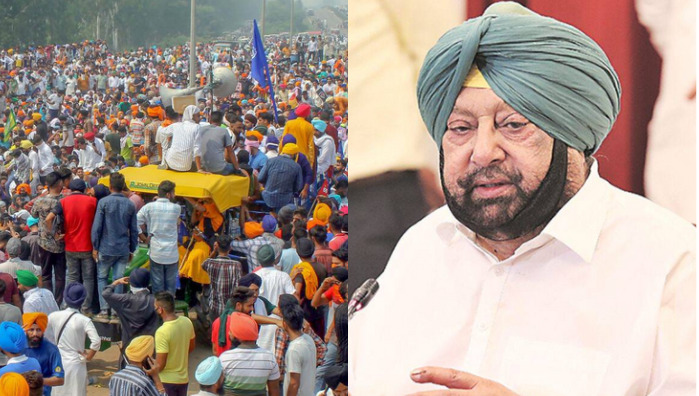The Essential supplies for the state of Punjab are blocked due to protest from farmers in Punjab who have blocked the railway tracks. The farmers in Punjab are protesting against the farm laws passed by the union government, despite the fact that these laws would be beneficial to the farmers nationwide. But, thanks to the misinformation campaign led by the Congress and Akali Dal, these farmers think of the farm bills as anti-farmer.
The supply of coal, food, and other essential items to the state of Punjab as well as the neighbouring states is disrupted due to the protests, not only for the civilian population but for the armed forces, too. “After the Rail Roko was started by farmers in Punjab, at least 15-20 trains with Army supplies were affected. These were not Army special trains, but general freight trains carrying supplies for the Army,” a Northern Railways official said.
The Army and CRPF were forced to take the land routes to complete the supplies in the Union territory of Jammu Kashmir and Ladakh in order to ensure that supplies are complete before the land route is blocked due to snowfall.
Although the rail blockade by farmers of Punjab does not pose a serious threat to the supplies as alternate routes of road and air are available for the armed forces, it certainly increased the cost of transportation and logistical issues. The Armed forces and paramilitary forces have stocked the required items by the end of last month.
“All winter stocking for Ladakh is over. There is enough short dumping of essential stores, food items and clothing etc which is then moved up as per requirement. It is a very finely tuned cycle, and in any case, most of the movement of supplies takes place via road. Any replenishment which needs to be done for forward areas takes place by air once the roads are blocked due to snowfall after late October,” said Major General Yash Mor (retd), who raised the Ladakh Sub Area a couple of years ago and was until recently Chief of Staff of a Corps.
The civilian population of Punjab, Jammu & Kashmir, and Ladakh is facing a severe shortage of essential items and the power distribution companies are forced to purchase power from neighbouring states because coal supplies could not be met for thermal power plants due to blockade of trains. Hundreds of trains have been terminated due to blockade of railways tracks by farmers.
As the Union government passed the three agriculture bills- The Farmers` Produce Trade and Commerce (Promotion and Facilitation) Act, 2020, and the Farmers (Empowerment and Protection) Agreement of Price Assurance and Farm Services Act, 2020, and The Essential Commodities (Amendment) Act, 2020- in the last parliamentary session, the rich farmers from Punjab and Haryana, and others with their tractors came out to protest. The protest has a political dimension– Congress is the ruling party in Punjab and it performed excellently in Haryana in the last legislative election- but the economic dimension of it is more important.
So, why are the protests most intense in Punjab and Haryana, the states which benefited most from Green revolution and have the richest farmers of the country- some farmers who are millionaires and do not have to pay taxes because agricultural income is tax-exempt- are protesting even as those in poorer states like Bihar are happy with the bills. You see, it’s a rich farmer versus poor farmer issue.
The existing system of Agricultural subsidies, from seed to fertilizer, the power to produce, and every other step in agriculture is subsidized and costs around 5 lakh crore rupees (approximate GDP of Bihar) to the governments. Rich farmers benefited most from the existing system. But, remember that around 75 per cent of Indian farmers (3 out of 4) are small and marginal, and they benefit from the new reforms. Therefore, the new farm bills must be wholeheartedly supported and the protest by the existing elites needs to be dealt with an iron fist as it is creating problems for the civilian population and the armed forces.
